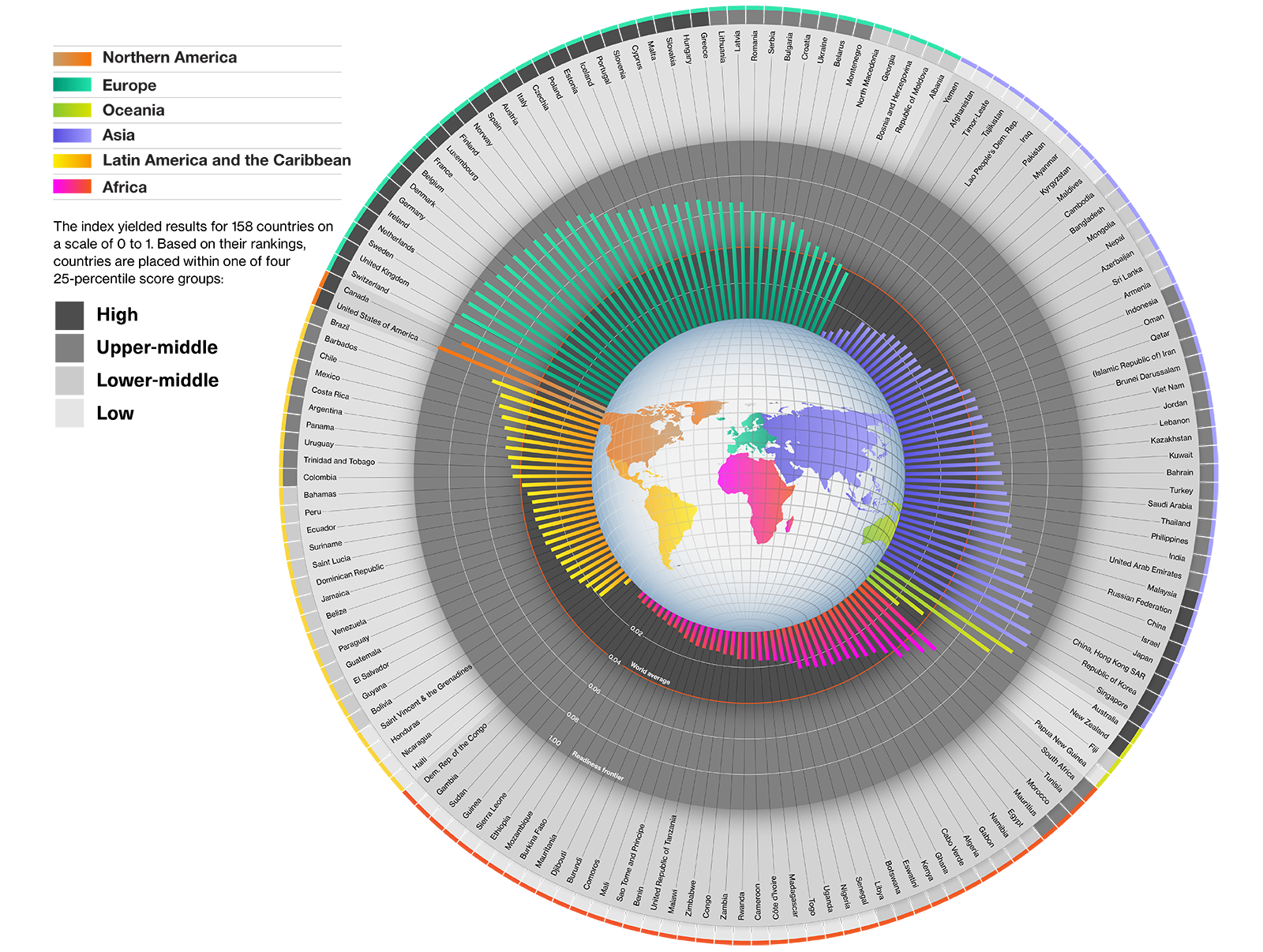Recent developments in frontier technologies, including artificial intelligence, robotics and biotechnology, have shown tremendous potential for sustainable development. Yet, they also risk increasing inequalities by exacerbating and creating new digital divides between the technology haves and have-nots. The COVID-19 pandemic has further exposed this dichotomy. Technology has been a critical tool for addressing the spread of the disease, but not everyone has equal access to the benefits.
It is time to ask how we can take full profit from the current technological revolution to reduce gaps that hold back truly inclusive and sustainable development. The UNCTAD Technology and Innovation Report 2021 examines the likelihood of frontier technologies widening existing inequalities and creating new ones. It also addresses the national and international policies, instruments and institutional reforms that are needed to create a more equal world of opportunity for all, leaving no one behind.
The report shows that frontier technologies already represent a $350 billion market, which could grow to $3.2 trillion by 2025. This offers great opportunities for those ready to catch this technological wave. But many countries, especially the least developed and those in sub-Saharan Africa, are unprepared to equitably use, adopt and adapt to the ongoing technological revolution. This could have serious implications for achieving the Sustainable Development Goals.
The Technology and Innovation Report 2021 urges all developing nations to prepare for a period of deep and rapid technological change that will profoundly affect markets and societies. All countries will need to pursue science, technology and innovation policies appropriate to their development stage and economic, social and environmental conditions. This requires strengthening and aligning Science, Technology and Innovation systems and industrial policies, building digital skills among students and the workforce, and closing digital divides. Governments should also enhance social protection and ease workforce transitions to deal with the potential negative consequences of frontier technologies on the job market.
The report also calls for strengthened international cooperation to build innovation capacities in developing countries, facilitate technology transfer, increase women’s participation in digital sectors, conduct technological assessments and promote an inclusive debate on the impact of frontier technologies on sustainable development.
A key takeaway from the report is that technologies are not deterministic. We can harness their potential for the common good, and we have an obligation to do so. That is why I launched a Strategy on New Technologies in September 2018 to guide the United Nations system on how new technologies can and must be used to accelerate the achievement of the Sustainable Development Goals and the realization of the promise of the United Nations Charter and the Universal Declaration of Human Rights.
New technologies hold the promise of the future, from climate action and better health to more democratic and inclusive societies. As this report highlights, the guiding principle of the 2030 Agenda for Sustainable Development to leave no one behind provides a compelling incentive for harnessing frontier technologies for sustainable development.
Let us use them wisely, for the benefit of all.
António Guterres
Secretary-General
United Nations
You can download the report here.
You can find data about the ranking of African countries in terms of technological innovation just below:
A country readiness index

Source: UNCTAD




